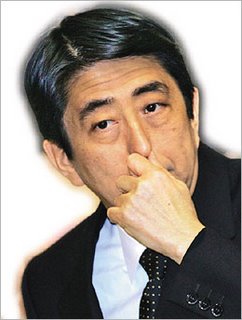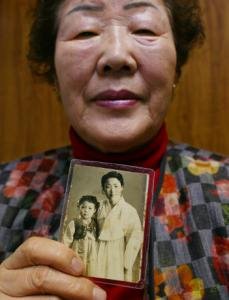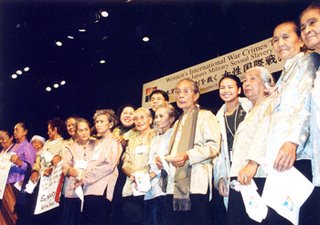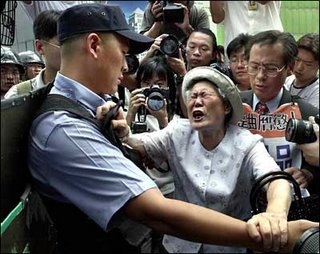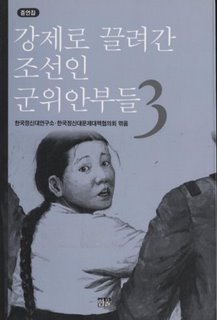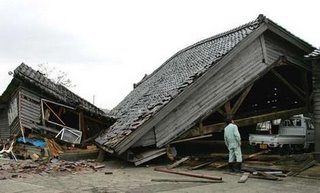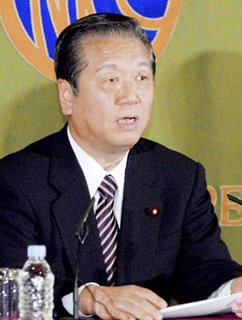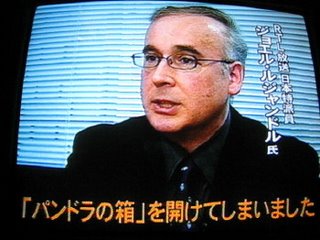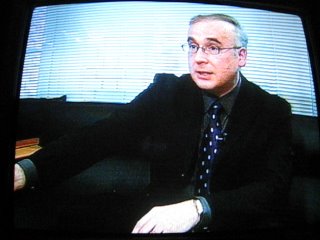
Japan Missile Defense System: a lot remains to
guarantee the protection of Japan archipelago.
Uncertainty between salesmen of the industry and
military personal who don't want to see their family
die because of bad, bad, bad acquisitions. Question
is simple: Unsure defense only or sovereign counter
attack? Better retox or better talk? Here is an
insight on the current problem, talks and quotes:
Japan deployed its first ballistic missile
interceptors at an Air Self-Defense Force base north
of Tokyo on Friday, but a number of operational issues
must still be addressed before the missile defense
program can become effective. A pressing issue now is
how to secure a location to carry out the unit's
mission. The Yomiuri wrote: " On March 23, the
Cabinet approved guidelines that stipulate how to
operate the PAC-3 system in case of emergencies.
Calling up the antiaircraft unit takes about an hour,
and getting it ready for operation after arriving at
the site also requires about an hour. It also takes
some time for the unit to travel to the site. The key
is whether the government can mobilize the unit as
soon as possible after detecting in cooperation with
the U.S. military the launch of a missile. A missile
is believed to be capable of reaching Tokyo from North
Korea in about 10 minutes. However, a senior Defense
Ministry official said even if the ministry were to
obtain information of the missile launch sooner, "it
will be extremely difficult if the defense minister
issues an interception order in line with the
emergency guidelines." In addition, the government has
yet to decide specifics such as how to protect people
from a missile if the unit fails to shoot it down, or
from missile debris if it is intercepted in the air."
The government plans to deploy PAC3 launchers at 11
bases across Japan by fiscal 2010, but PAC3 systems
alone cannot protect the entire country from missile
attacks.
For example, Japan still lacks SM3-armed Aegis ships
needed to complete the missile defense setup.
Upgrades to its first ship to have SM3s will not be
completed until the end of 2007. The government plans
to add an Aegis ship to its fleet each year starting
in fiscal 2008 until it has three more SM3-equipped
ships. So it will take some time until Japan has the
six Aegis ships called for in the program, including
two without SM3s. To fill this vacuum, Japan intends
to create an arrangement in which information such as
signs of missile launches can be exchanged instantly,
including with U.S. forces, according to a senior
ASDF official. Japan and the U.S. are stepping up
information gathering capabilities by building new
radar facilities, for example. But with North Korea's
intermediate-range Rodong ballistic missile expected
to be able to reach Japan in about 10 minutes, it is
not known whether data from U.S. early-warning
satellites can be conveyed to the Japanese side in a
timely manner. Other issues need hammering out, such
as how the Japanese missile defense system will
coordinate with the USS Shiloh, an SM3-equipped Aegis
cruiser deployed by the U.S. at its base in Yokosuka,
Kanagawa Prefecture, as well as coordinate with PAC3
launchers it installed at Kadena Air Base in Okinawa
Prefecture. (The Nikkei Saturday morning edition)
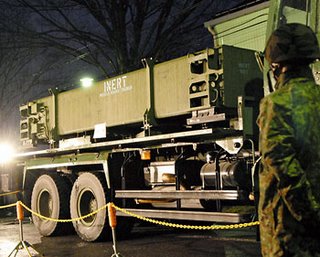
Opponents say the purpose of the Patriot system is to
protect military facilities, including those used by
US troops, and denounced today's arrival of the
launchers as a "military performance". "Bringing
PAC-3s to places such as Iruma makes them the focus of
interception strategy and therefore [puts them] at
risk of becoming the target of attack by other
countries," campaigners said in a statement. By the
end of the year, Japan expects to equip one of its
warships with an SM-3 interceptor capable of reaching
incoming missiles earlier. Preparing for the
perceived North Korean threat is proving expensive,
with spending on missile defence alone expected to
rise by 30.5% to 182.6bn yen in the fiscal year 2007.
Japan plans to have 30 PAC-3 launchers in place in 10
locations within the next four years. (Wire news)
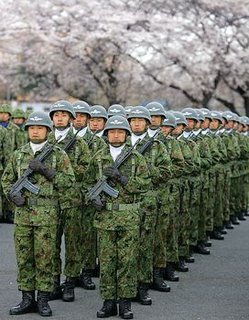
Image: Members of Japan's first rapid - response
counter-terrorism division attend an inauguration
ceremony at the Ground Self - Defense Force's Asaka
base in northwestern Tokyo on March 31st, 07.
Japan and the United States are in the final stage of
setting a meeting between Japanese Defense Minister
Fumio Kyuma and U.S. Secretary of Defense Robert
Gates for April 30 in Washington. The two countries
are also trying to arrange for a foreign ministerial
gathering on the same date there, followed by a
so-called ''two-plus-two'' top security meeting of
their foreign and defense ministers May 1, the source
said.

Image SM-3
Recall...
Some remarks on Theater Missile Defense (TMD).
"As emphasized by Moshe Ahrens and other Israeli
government statesmen, Patriot killed few, if any, SCUD
missiles launched against Israel by Iraq writes
Richard L. Garwin 26th at Pugwash Workshop on Nuclear
Forces "Nuclear Forces and the ABM Treaty". That is
not to say that Patriot is a poor anti-aircraft system
or even that it is a poor anti-missile system, when
properly modified. It does show some of the serious
problems of achieving operational effectiveness with a
non-nuclear interceptor.
All of the SCUD payloads launched Israel and Saudi
Arabia in 1991 were "unitary" high explosive-- that
is, a single high explosive charge carried on the SCUD
warhead to detonate on impact. Such warheads in the
future, directed against military installations, could
be handled by defensive systems of very short range.
Countering their use against cities is a more
difficult problem, but still one for which systems
like Patriot upgrade should be reasonably effective in
the terminal area.
But even TMD systems are often advocated with the
promise to counter missiles carrying chemical or
biological payloads, and they problem there is that
military effectiveness alone pushes the offense toward
bomblets which could conveniently be made to re-enter
independently, having been dispensed from the
ballistic missile very early in flight.
To the extent that one is concerned about chemical or
biological attack with ballistic missiles, one wants
to push the universalization of the BW Convention and
the CW Convention, and commit the nations of the Earth
to retaliate against any military use or possession of
BW or CW.
Paradoxically, it is the relatively ineffective
unitary high explosive warhead and the highly
effective nuclear warheads that might be individually
intercepted in the terminal area. But the standard of
performance required of a defense that has the
responsibility of countering a nuclear warheads is
very high, and there, too, the first line of defense
is to prevent the acquisition of nuclear weapon
capability. Still, both terminal-area TBM against
missiles of short range and boost-phase intercept
capability are feasible and desirable.
End of quotes.
